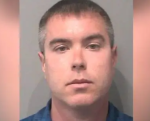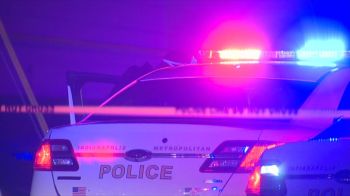(INDIANAPOLIS) — Last summer’s riots in Indianapolis and other cities have triggered a package of
anti-rioting bills.
A Senate committee will vote next week on a bill making rioting a felony instead of a misdemeanor if
there’s serious damage or injury. Indianapolis Republican Mike Young’s bill would also let the
attorney general file rioting charges instead of local prosecutors, make it easier to charge people for
egging on rioters from the sidelines, and harder for suspects to post bail. Young says Indy Metro
police told him they found themselves arresting the same people two nights in a row.
The bill also allows prosecutors to seize the assets of people who finance protesters’ actions. Young
charges the Indianapolis protests were fueled by outside agitators. And an amendment authored by
Majority Leader Mark Messmer (R-Jasper) would strip police of their immunity from lawsuits for
failure to protect if they don’t make at least a “reasonable” effort to stop rioters and looters. Young
and Bedford Senator Eric Koch (R) suggest police in some cities stood back and let the violence
play out.
Marion County prosecutors charged 27 people with crimes connected to the Indianapolis riots, with
all but two suspects from Indiana and all but five from Indianapolis. Prosecutors declined to pursue
charges against another 41 people arrested during the protests.
Young says his goal is to protect the right to peaceful protest while punishing acts of violence. He
says violent protesters undermine protesters’ effort to be heard.
The Senate Corrections and Criminal Code Committee unanimously approved a separate bill ordering police to protect monuments and statues from vandals, and threatening to withhold state support if they don’t. But Senate Democrats and the Indiana Public Defenders Council say the larger anti- rioting bill is too broad. Senator Karen Tallian says it would allow charges and asset seizures from people who were just bystanders, with no violent intent. And the public defenders council’s Michael Moore says the bill would have a chilling effect on legitimate protest while having no effect on rioters. He says those who commit violence aren’t going to be deterred by harsher penalties.
And the Indiana Prosecuting Attorneys Council objects to the provision sharing jurisdiction with the
attorney general. David Powell says that could produce situations where the two offices
independently pursue conflicting charges, or where a prosecutor and attorney general of opposite
political parties try to use cases for partisan advantage.











